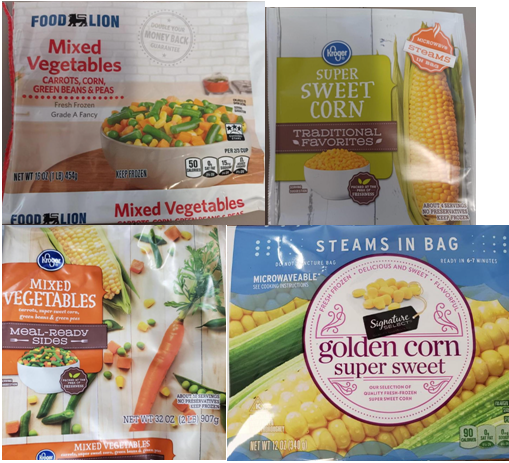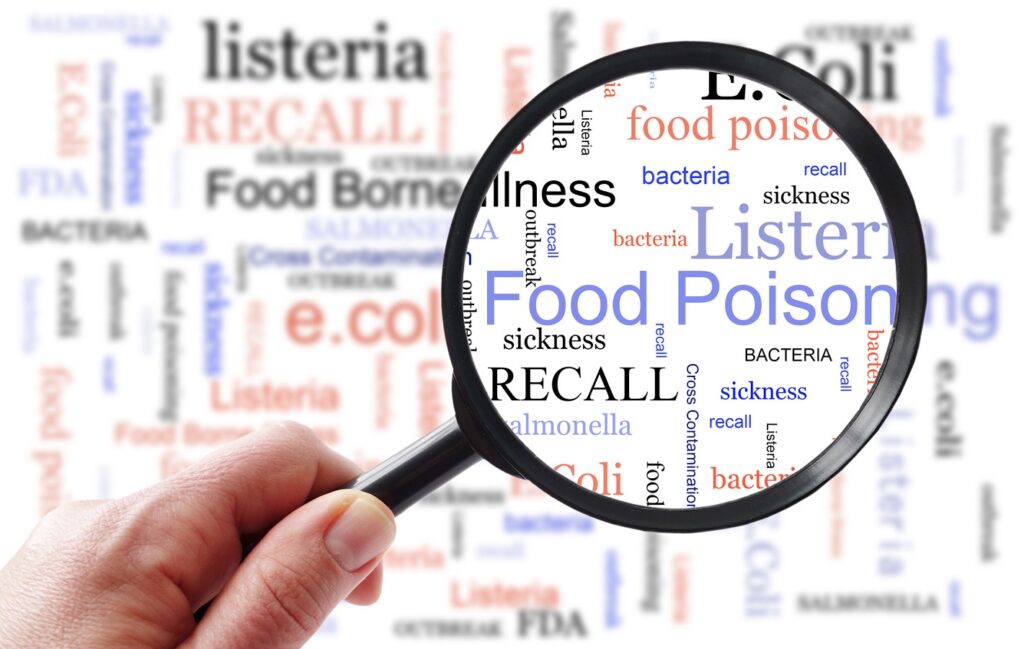The FDA reported that Twin City Foods, Inc.(Stanwood, Washington) recalled a limited quantity of Not-Ready-To Eat Individually Quick Frozen (IQF) Super Sweet Cut Corn and Mixed Vegetables in retail bags due to a potential for these products to be contaminated with Listeria monocytogenes. To date, there have been no consumer reports of human illness or other complaints associated with this product. The recall has been initiated because finished products may potentially be contaminated with the Listeria monocytogenes, based on one customer’s 3rd party lab results for the IQF sweet cut corn. The products were sold under the brands of Food Lion, Kroger, and Signature Select brands frozen sweet corn and mixed vegetables @ https://www.fda.gov/safety/recalls-market-withdrawals-safety-alerts/twin-city-foods-inc-recalls-frozen-super-sweet-corn-and-mixed-vegetables-because-possible-health
ruth
Twin City Foods, Inc. of Stanwood, Washington, is voluntarily recalling a limited quantity of Not-Ready-To Eat Individually Quick Frozen (IQF) Super Sweet Cut Corn and Mixed Vegetables in retail bags, due to a potential for these products to be contaminated with Listeria monocytogenes. Listeria mono
ruth
The FDA announced the selection of James “Jim” Jones as the first Deputy Commissioner for Human Foods. The new executive position will lead the charge in setting and advancing priorities for a proposed unified Human Foods Program (HFP). Program areas include food safety, chemical safety, and innovative food products. Jones is scheduled to begin at the FDA on Sept. 24. Jones came to the FDA from the EPA. At the EPA, he was a principal architect of the 2016 overhaul of the Toxic Substances Control Act. Jones was a member of the Reagan-Udall Foundation’s Independent Expert Panel for Foods, which submitted a report on the operational evaluation of the FDA’s Human Foods Program to the agency in December 2022. His participation in the Reagan-Udall panel makes him intimately knowledgeable of the agency’s challenges and opportunities and the panel’s recommendations that the FDA is adopting in its proposal for a unified HFP. @ https://www.fda.gov/news-events/press-announcements/fda-names-first-deputy-commissioner-proposed-unified-human-foods-program?utm_medium=email&utm_source=govdelivery
The FDA has selected James “Jim” Jones to serve as the first Deputy Commissioner for Human Foods. Jones will lead the charge in setting and advancing priorities for a proposed unified Human Foods Program. Jones is scheduled to begin at the FDA on Sept. 24.
CORE update of August 23, 2023, the CORE list of outbreaks and adverse events includes four active cases. There were no new cases this week. The outbreak of Listeria monocytogenes (ref #1172) was updated to include state sampling results confirming that the recalled Soft Serve On The Go ice cream cups caused this outbreak. For the outbreak of Salmonella Paratyphi B var. L(+) tartrate+ (ref #1157), the outbreak has ended, and the FDA’s investigation has closed. Epidemiologic and traceback investigations identified Pico de Gallo as the outbreak’s source. FDA collected and analyzed product and environmental samples as part of the investigation, but all samples were reported as negative for Salmonella. Investigators were unable to determine a specific ingredient within the Pico de Gallo. This outbreak is over, and there is no risk to consumers. For the outbreak of Cyclospora cayetanensis (ref #1159), the case count has increased from 69 to 72 cases. @ https://www.fda.gov/food/outbreaks-foodborne-illness/investigations-foodborne-illness-outbreaks?utm_medium=email&utm_source=govdelivery
The following is a list of outbreak and adverse event investigations primarily being managed by FDA’s CORE Response Teams.
ruth
Food Poisoning reported that Freshly Foods (New Orleans, LA) recalled three varieties (Cantaloupe Cup, Mixed Fruit Cup, and Pineapple Cup) of Team Fresh & Go Fruit Cups due to possible Listeria monocytogenes contamination. The products were packaged in 12oz plastic cups with a lid. The recalled products were sold as a single unit in Florida, Louisiana, and Mississippi. About 500 of these products are included in this recall. According to the FDA, the recall was initiated on June 29, 2023. @ https://foodpoisoningbulletin.com/2023/team-fresh-go-fruit-cups-recalled-for-possible-listeria/
Team Fresh & Go Fruit Cups in three varieties are being recalled for possible Listeria monocytogenes contamination. There is no mention about whether




